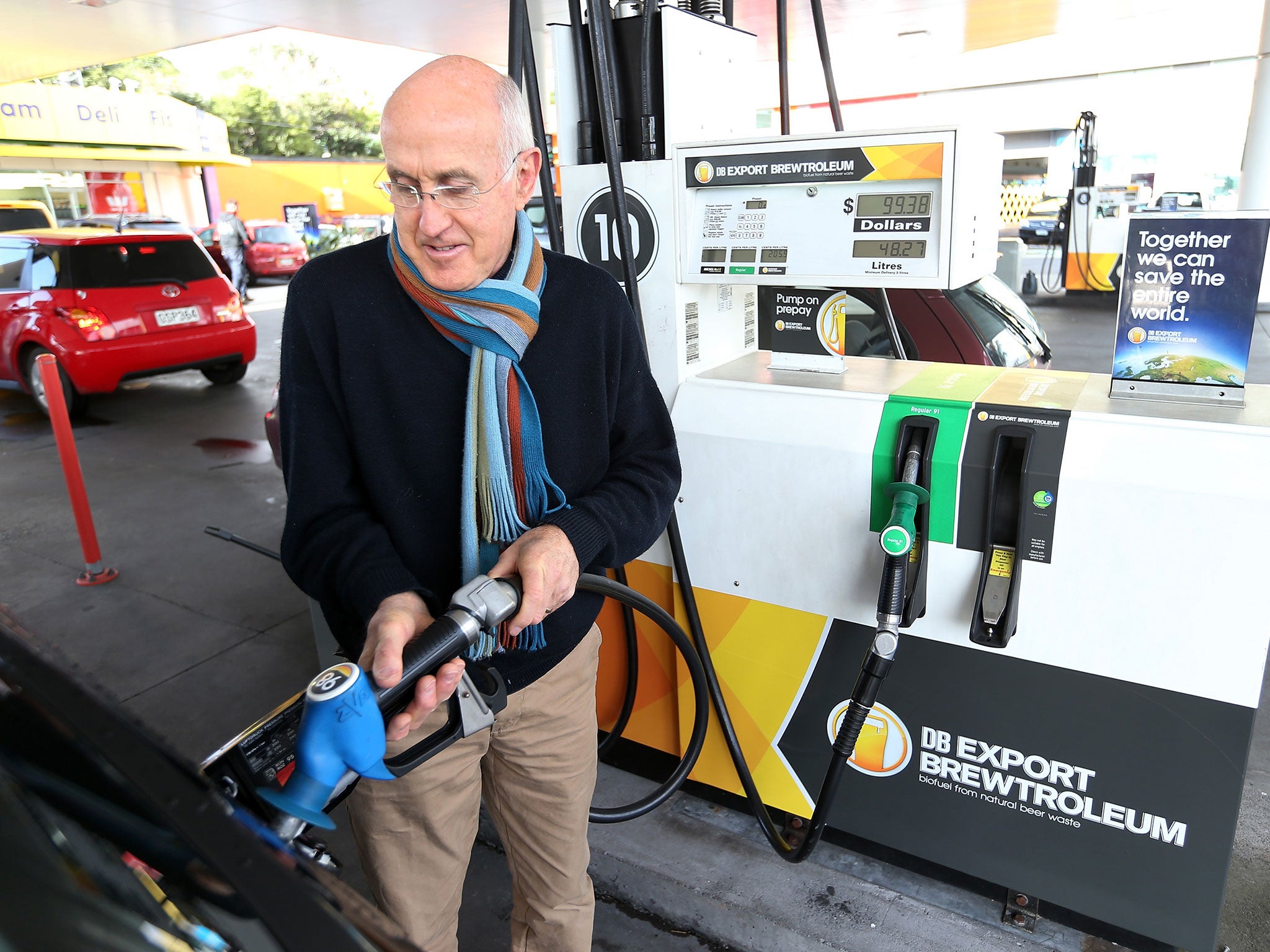Drivers fill up on 'Brewtroluem' a beer-based biofuel
The beer fuel creates nearly ten per cent less carbon dioxide than regular petrol

Your support helps us to tell the story
From reproductive rights to climate change to Big Tech, The Independent is on the ground when the story is developing. Whether it's investigating the financials of Elon Musk's pro-Trump PAC or producing our latest documentary, 'The A Word', which shines a light on the American women fighting for reproductive rights, we know how important it is to parse out the facts from the messaging.
At such a critical moment in US history, we need reporters on the ground. Your donation allows us to keep sending journalists to speak to both sides of the story.
The Independent is trusted by Americans across the entire political spectrum. And unlike many other quality news outlets, we choose not to lock Americans out of our reporting and analysis with paywalls. We believe quality journalism should be available to everyone, paid for by those who can afford it.
Your support makes all the difference.New Zealand drivers can now fill up their cars with a biofuel made from beer by-products. Brewtroleum is, its makers say, cleaner than normal petrol or diesel.
Created by Gull fuel and DB Export brewers, Brewtroleum is made from ethanol which has been extracted from yeast left over from local beer brewing and normal fuel.
It is the first commercial fuel in the world to be made using brewing by-products and creates up to eight per cent less carbon dioxide than regular fuel, according to Gull.
The new biofuel has been available from filling stations on New Zealand’s North Island since Monday and if the initial 300,000 litres prove popular, Gull might find itself brewing up more on a regular basis.
To make 300,000 litres of the biofuel it takes 30,000 litres of ethanol which is extracted from 58,000 litres of yeast slurry that would otherwise be thrown away or given to farm animals.
“We're helping Kiwis save the world by doing what they enjoy best - drinking beer,” DB spokesman Sean O'Donnell told the New Zealand Herald.
The first batch of Brewtroleum would O’Donnell said, last around six weeks. “It's a case of testing consumer demand and assessing the feasibility of on-going production and logistics.”
According to the AA, using 30 litres of biofuel each year would save over 250kg of carbon dioxide emissions a year – just under the same amount of emissions for a person flying from Auckland to Sydney.
Join our commenting forum
Join thought-provoking conversations, follow other Independent readers and see their replies
Comments